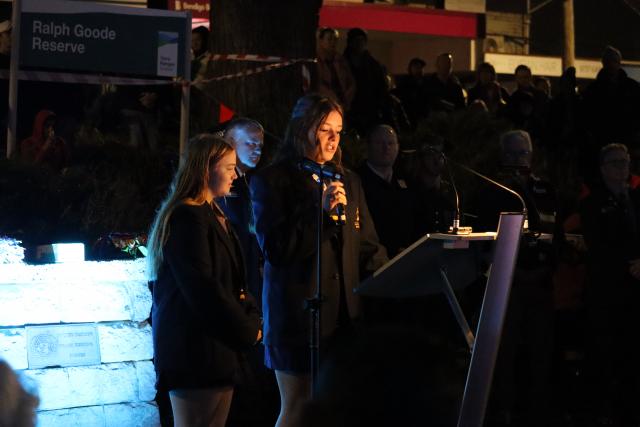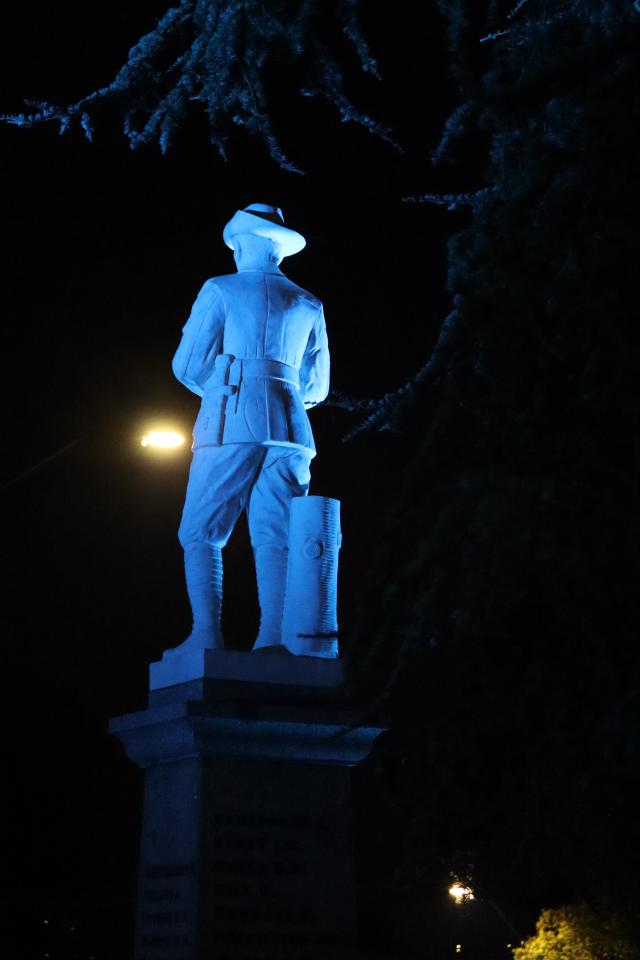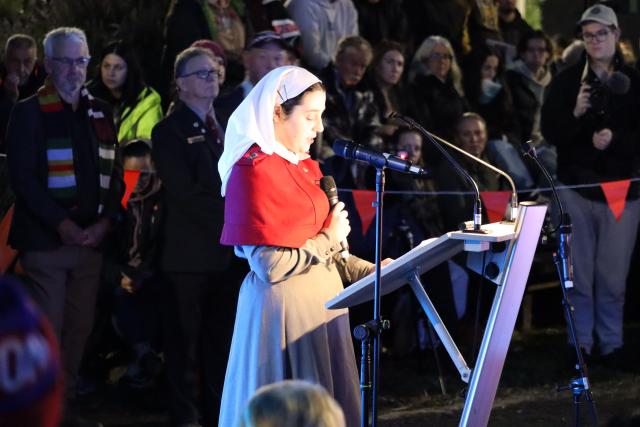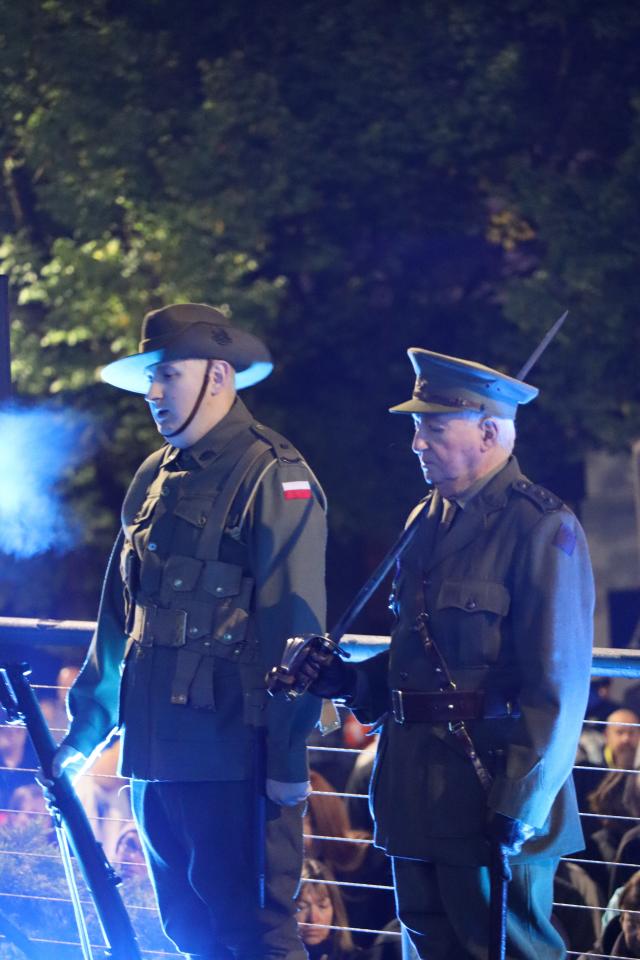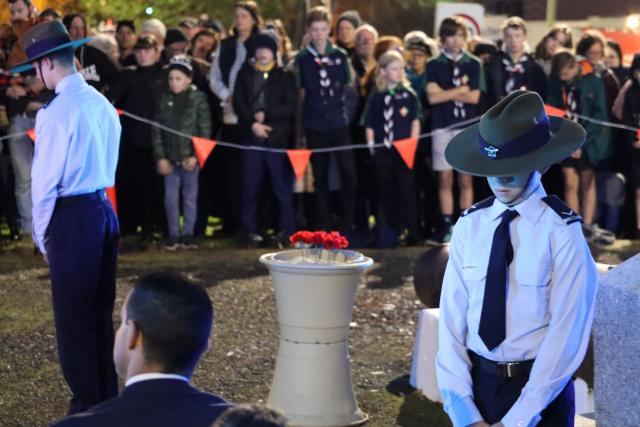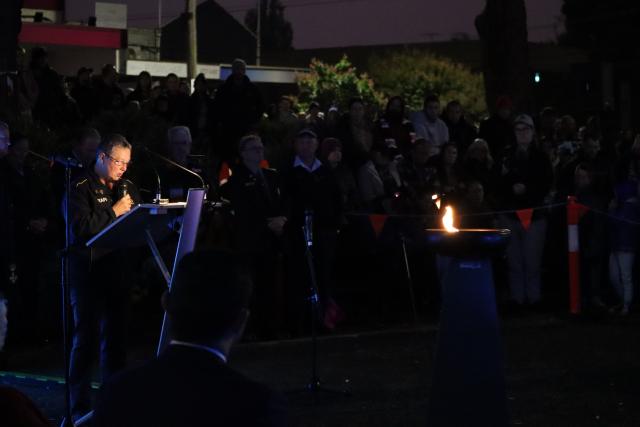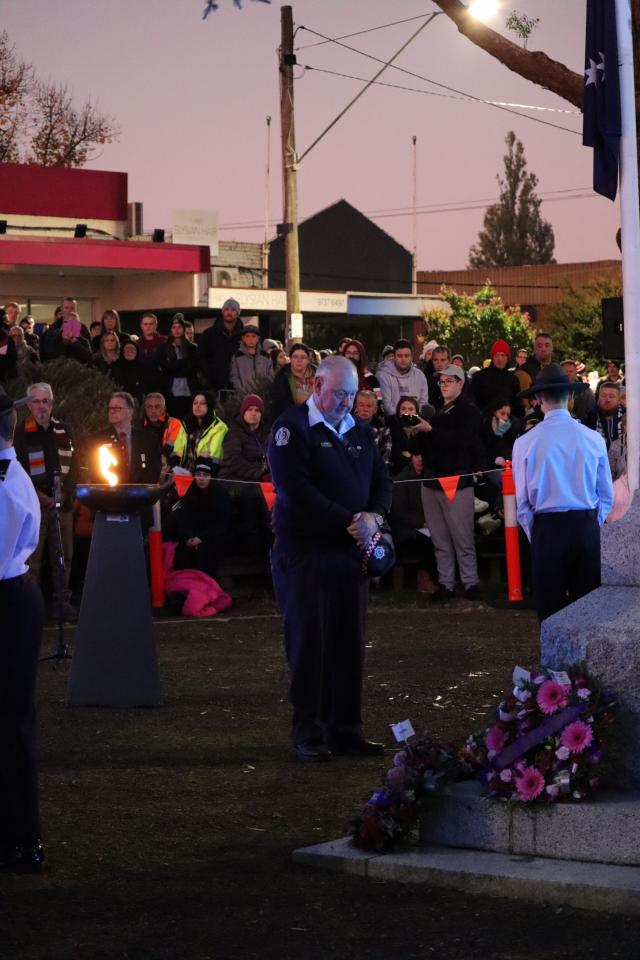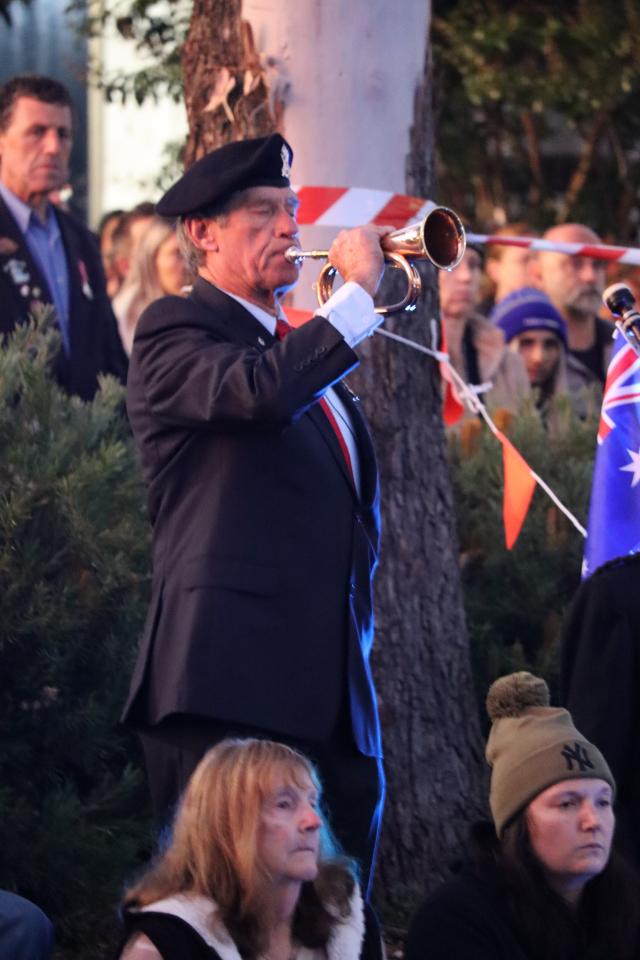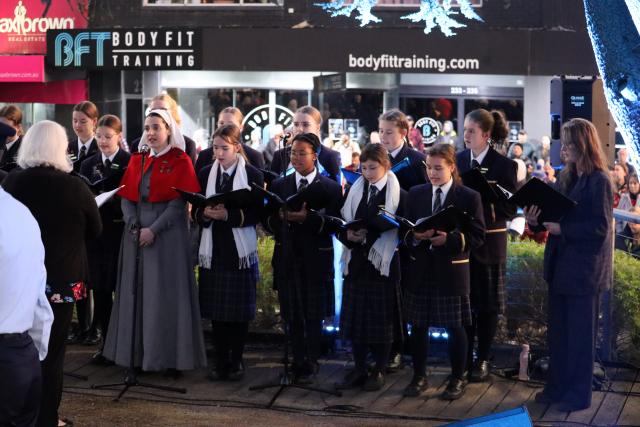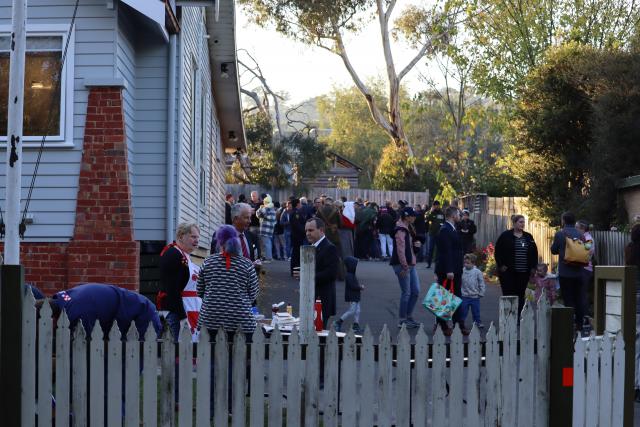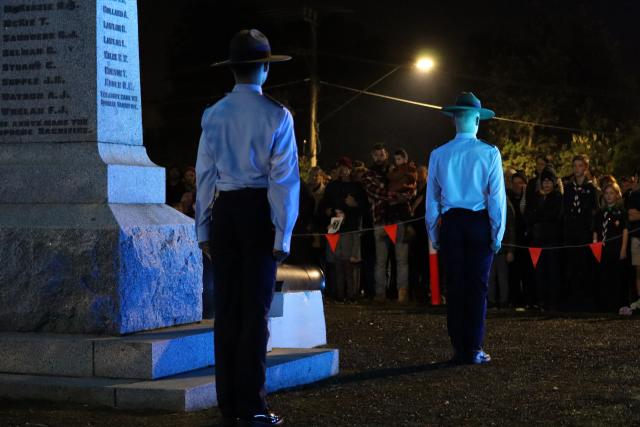
By Mikayla van Loon
As dawn broke on Anzac Day, thousands gathered in the centre of Lilydale to honour and commemorate the fallen men and women who sacrificed all for their country.
The cenotaph lit in a shade of blue light, the eternal flame burning, a sombre autumn air draped over those awaiting the ceremony set the scene for yet another well attended and respectful service.
“We’re here to pay our respects to the men and women who have served this country in a time of war, also the elders and the leaders of the Lilydale community past and present,” Lilydale RSL president Bill Dobson said in his opening remarks.
“We’re honoured to have our veterans and the general community here. Being here is the best way to honour the service of those that gave so much. Never forget to remember.”
While recognising and remembering the 108th anniversary of the Gallipoli landing in World War I, there was also a tribute to those who served in wars after the 1920s.
Yarra Ranges Council deputy mayor Sophie Todorov led the way, paying homage to every soldier, particularly in a year that marks the 70th anniversary of the Korean War and the 50th anniversary of the Vietnam War.
“Each person who took up their arms and took part was a person with family, with friends, with history, a community back home they were part of. They had hopes and dreams,” she said.
“When we talk about the thousands of losses during the campaign, it’s important we never forget that every loss, every fallen soldier was a human who had a story.
“Those who came back were of course forever changed by the experience. We should never forget their contributions, the extremely high cost that has been paid for those of us who came after.”
Casey MP Aaron Violi spoke of the watching and waiting that happened just shy of five years after World War II, as the conflict in Korea worsened.
He reflected on the 340 Australians who lost their lives in Korea and the over 1206 who were wounded from across all divisions of Australia’s defence forces.
“It was an Australian regiment that repulsed the last attack just two days before the final armistice came into effect on the 17th of July 1983,” he said.
“The Korean War tested the strength and determination of our nation.”
Seeing the number of young people and school children in attendance, Mr Violi said it was their future that soldiers fought so gallantly for.
“They traded all of their tomorrows so we could have today. Anzac Day has rightfully become a day that honours all those who served in conflicts and peacekeeping operations throughout our history.
“It’s about bringing the community together to honour their sacrifices and service as a reminder to appreciate the way of life that we all enjoy today.”
The stories of veterans and civilians who served their country as well as those around them highlighted the commitment of people throughout all generations.
In her yearly tribute from nurse to nurse, Great War Association member Yulia Panteleeva dedicated her speech to the only survivor of the Bangka Island massacre during World War II, Vivian Bullwinkel.
She honoured Ms Bullwinkel’s strength and bravery to attempt to save her fellow comrades and nurses during the attack. Ms Bullwinkel died in July 2000 aged 86.
For Lilydale Primary School teacher Michelle Matthews, learning of both her mother and grandparents’ sacrifice during World War II to hide and save Jewish people during the resistance in The Netherlands came only years ago.
Ms Matthew’s grandfather, a factory worker owned by a Jewish family, saw the horrors as Jewish people were rounded up and taken to concentration camps when the Germans invaded in 1940.
“My grandfather was determined to help and support the people who had become his friends and he took a huge personal risk to obtain special papers to protect the 300 Jewish workers at the factory from being transported to Germany,” she said.
Despite his efforts, the gestapo eventually came and transported the Jewish workers to camps. Only six survived the war.
“During the rest of World War Two, both my grandfather and my mother were very active in the Dutch resistance. My mom was a courier and risked her life many times, transporting important information for the resistance. She was only 15 years old.”
Throughout the war, Ms Matthews’ grandparents continued to hide women and children, protecting a 14 year old girl until the war ended in 1945.
“I find it hard to express in words the feeling of pride I have when I think of my grandparents today. They lived their lives and supported their friends, neighbours and colleagues.”

